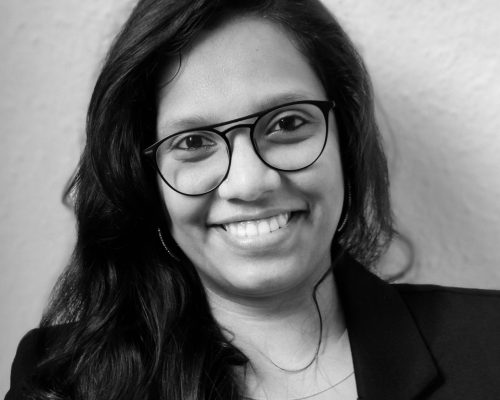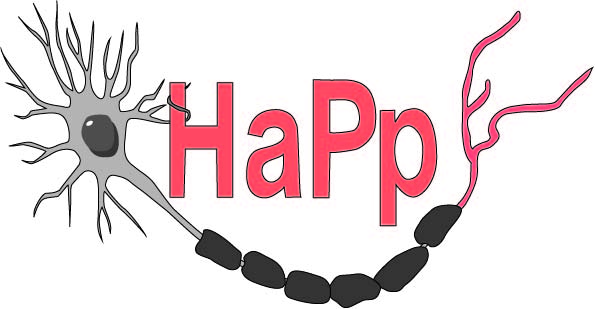THE "HAPPY" Ph.D. STUDENTS
WELCOME!
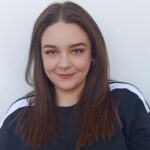

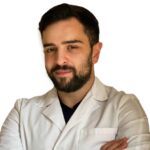
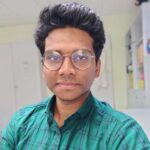

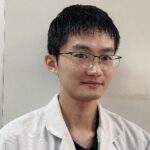

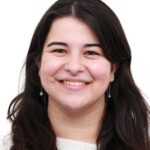
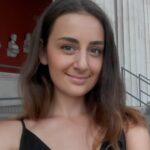
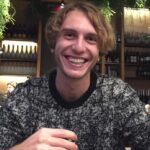





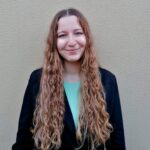
Ariadni BELLA (ESR 6)

Main host: NUIG (Dr Finn & Dr Roche)
Secondary academic partner: CNRS (Dr Yalcin)
Non-academic partner: Neurofit
“I was born in Ioannina, Greece where I completed my secondary education in 2016 and got accepted by the Department of Biological Applications and Technology of University of Ioannina to pursue my undergraduate studies in the field of Biology. I obtained my Integrated Master’s Degree in 2021, working on the role of the TRPA1 receptor in the development of neuropathic pain, thus developing a great interest in chronic pain research. Having had a true fascination for mood disorders-related research for the majority of my time studying biology, I decided to apply to the HaPpY program, which brings together my fundamental scientific interests, pain and stress/anxiety/depression. I believe that by joining this program one could have the chance to gain new technical skills and complementary abilities related to research, while being a part of different working environments and keeping in touch with a large academic network. All the above could set the ground for a great future in academics, while offering the opportunity to construct a refined scientific core. These are the main reasons I applied to this program and my expectations concerning the benefits to be gained. As far as my non-academic interests are concerned, I love learning new languages, playing the piano and taking hiking trips in nature. I also enjoy playing board games and keeping up with astronomy events and news.”
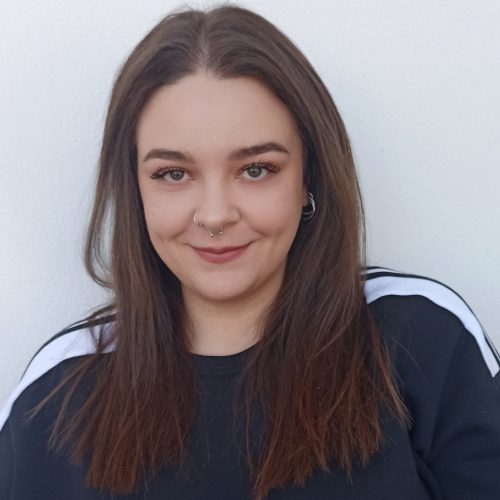
Anh Le CONG TUAN (ESR 3)

Main host: UMinho (Dr Leite-Almeida)
Secondary academic partner: CAU (Dr Nees)
Non-academic partner: Tecnimede
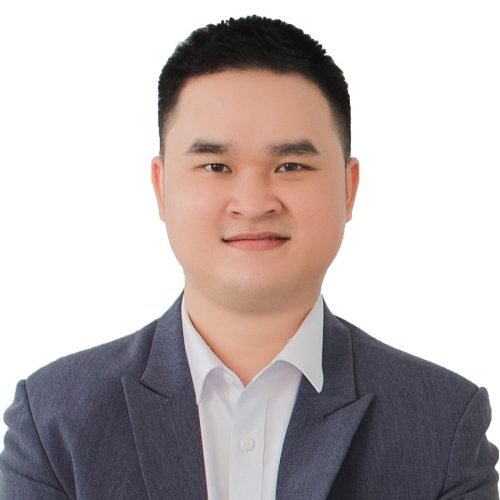
“I am from a small village in Vietnam where many people still struggle to have access to school and healthcare. I consider myself extremely fortunate to be self-motivated enough to overcome the difficult situation and one day aid my hometown. My journey began with a 5-year pharmacy program in which I learned about and fell in love with science in general and neuropharmacology in particular. I have always wanted to be a leading expert, and I’m determined to get there by learning from the best. After graduation, I sought out an opportunity to study abroad, and in 2019, my hard-working paid off when I was awarded a scholarship from the Irish government. I studied for a MSc in Neuropharmacology at the National University of Ireland, Galway. My area of interest had increasingly defined over time, particularly on the neuropharmacology and therapeutics module, I was extremely interested in Prof. David Finn’s series of lectures on pain research, which greatly motivated me to extend my research career in this field. My project, which compares animal data and human data to uncover predictive factors, susceptibility and resilience factors in chronic pain and mood disorders comorbidity, has long been one of my favorites. As regards the Happy training in general, I think it is a fantastic programme. The most enticing aspect of Happy is the diversity in organizations, which includes experts from numerous disciplines and the involvement of both academic and non-academic organizations in the design and implementation of the programme. I believe the Happy training will be a wonderful learning experience for PhD candidates like myself, allowing us to build a vast network of prominent researchers from around Europe and the world.”
Cassandra DEICHSEL (ESR 13)

Main host: UCA (Dr Berrocoso)
Secondary academic partner: ULaval (Dr De Koninck)
Non-academic partner: Doric lenses
“Although originally from Albuquerque, New Mexico USA, my neuroscience career began at the University of St Andrews in Scotland where I got a Bachelor’s degree in Neuroscience. From there I obtained a masters degree in Biomedical Neuroscience from the Technical University of Munich. There I first became interested in psychiatry during my thesis where I investigated the effect of anesthesia on the development of Alzheimer’s Disease in mice using Electroencephalography. After my Masters, I spent a year looking into neural circuit alterations in mouse models for Schizophrenia and Bipolar Disorder. Wanting to continue pre-clinical circuit-based psychiatric research, the HaPpY program was a great fit. The HaPpY program will provide multi-faceted training that will prepare me for future in academia or industry. In my PhD I will investigate one specific neural pathway to determine its role in the comorbidity of depression and chronic pain. By perturbing the pathway to provide further understanding, we will move closer to the development of novel therapeutic targets.”
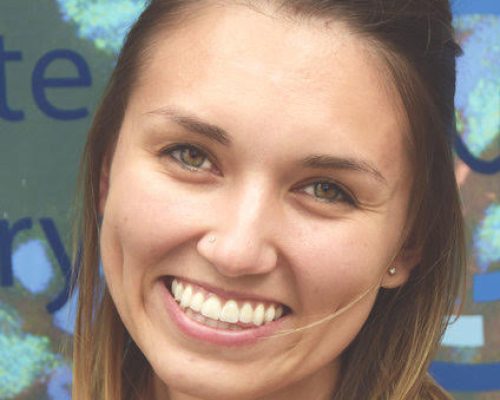
Alba DIEGO (ESR 5)

Main host: NUIG (Dr Finn & Dr Roche)
Secondary academic partner: UKHD (Dr Kuner)
Non-academic partner: EFIC
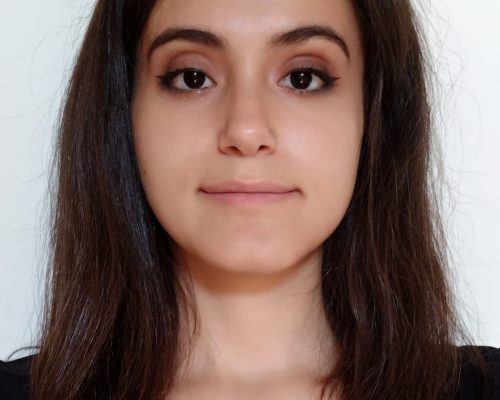
“I am from a small town in northern Spain. I have always loved nature and spending time outdoors learning everything I could about it. That made me decide to study biology at the Autonomous University of Madrid. There, I started studying and fell in love with neurosciences, so I decided that I would try to dedicate my career to research in that field. I applied to the HAPpY projects to pursue that will. From this program, I hope to grow as a scientist by learning as much as I can.”
Chiara DI MARINO (ESR 9)

Main host: NUIG (Dr Finn & Dr Roche)
Secondary academic partner: UCA (Dr Berrocoso)
Non-academic partner: Transpharmation
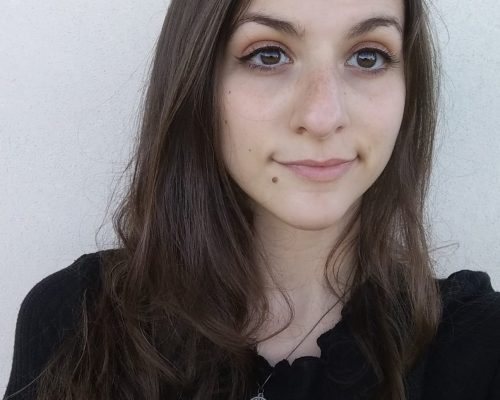
Daniele FUSCO (ESR 7)

Main host: UCA (Dr Berrocoso)
Secondary academic partner: NUIG (Dr Finn & Dr Roche)
Non-academic partner: Transpharmation
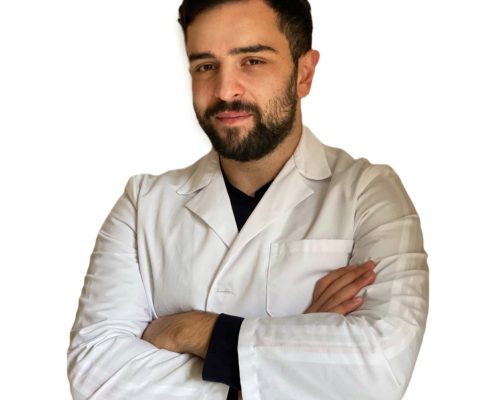
”Hello everyone, my name is Daniele Fusco, I come from Naples (Italy). Passionate about science since childhood, with a special attention to neurosciences, I love animals and nature. I studied Pharmacy at the University of Campania Luigi Vanvitelli. My studies allowed me to get closer to neuroscience and my passion for it led me to apply to the Happy Program. Thanks to Happy I will finally be able to take an active part in the scientific process and I will also have the opportunity to meet new and experienced people to work and discuss ideas with.”
Mithil GAIKWAD (ESR 10)

Main host: CNRS (Dr Lutz)
Secondary academic partner: ULaval (Dr Labonté)
Non-academic partner: Doric lenses
“Being a Computational Biologist I am passionate about solving complex neuroscience challenges by using the Systems Biology approach. I have joined the HaPpY Doctoral programme because it provides an international and interdisciplinary collaboration of a wide range of expertise that would consequently lead to excellent research in the field of neuroscience. From this programme, I am enthusiastic about gaining research, communication, transferable skills and a lifelong relation with my peers that would help me to contribute to science in the best way I can. I generally enjoy reading, cooking and listening to music. My educational background is in BSc Biotechnology from H.P.T. Arts and R.Y.K. Science College, India and MSc Bioinformatics from Pondicherry University, India. Besides, I possess research experience as a Junior Research Fellow from Tezpur University, India and a Research Assistant position from IPK Gatersleben, Germany.”
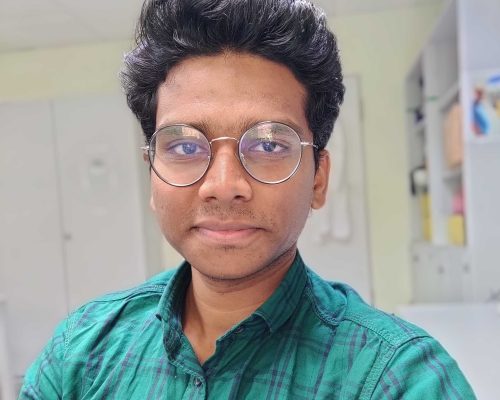
Gemma GONZALEZ HERNANDEZ (ESR 15)

Main host: UH (Dr Rantamaki)
Secondary academic partner: UCA (Dr Berrocoso)
Non-academic partner: Neurex
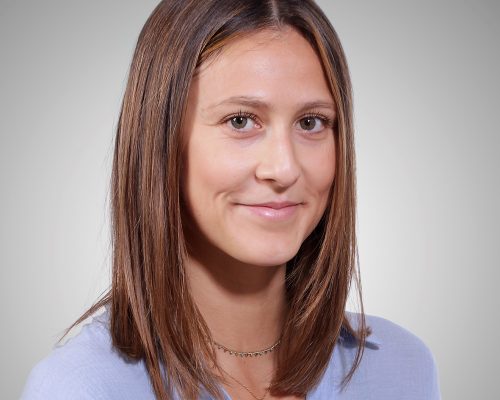
“My name is Gemma, I´m from Cádiz and I´m a cheerful and upbeat person, passionate about neuroscience research, who is always willing to start new projects and live exciting experiences. My two passions are sports and travelling: I specially like playing team sports and I love discovering different countries and immersing myself in the local culture of the places that I visit. I studied Pharmacy at the Complutense University of Madrid and I applied to HaPpY program because previous traineeships fueled my interest for this field and motivated me to develop a meaningful research career. I believe this project is the best way to fulfil this purpose, as its interdisciplinary and intersectoral principles enable to share the knowledge and approach the core theme of the project from different and complementary perspectives. Therefore, I expect that through HaPpY program we can contribute to achieve significant scientific progress with the ultimate goal of breaking the vicious cycle linking chronic pain and mood disorders.”
Yechao HAN (ESR 12)

Main host: UKHD (Dr Kuner & Dr Oswald)
Secondary academic partner: CNRS (Dr Yalcin)
Non-academic partner: Neurofit
“My name is Yechao Han, coming from China. I acquired my bachelor and master degree in Biomedical Engineering. Currently, I am a Ph.D. student under the supervision of Prof. Rohini Kuner (Heidelberg University) and Prof. Ipek Yalcin (Strasbourg University). My research interest is focused on the oscillatory mechanism of chronic pain and its commodities. It is my great honor to be one of the ESRs in HaPpY program, which provides an excellent opportunity and internationally multi-disciplinary research academia for my research interest. I am looking forward to deciphering one of the possible neuronal mechanism and circuitry oscillation in chronic pain and mood disorders in ESR12 of HaPpY program.”
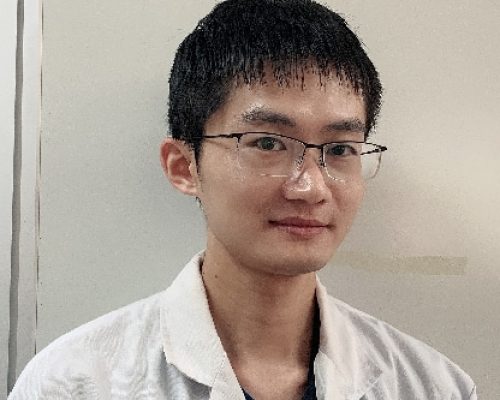
Yasemin KUVVET (ESR 14)

Main host: UH (Dr Rantamaki)
Secondary academic partner: CNRS (Dr Barrot)
Non-academic partner: Theranexus
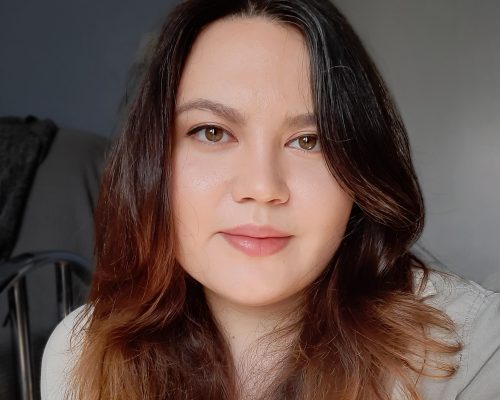
“Hello! I am Yasemin Kuvvet and I come from Turkey. I have graduated from Molecular Biology and Genetics (B.S) at Middle East Technical University and from Neuroscience (M.S.) at Koç University. In my graduate program, I mostly worked on animal models of Epilepsy and Parkinson’s disease. My Master’s thesis was about the role of chronic stress on the development of Parkinson’s disease phenotype. In ESP14, we will work on rapid-acting and classical antidepressants in chronic stress and pain animal models. With the help of this program, I hope to establish a scientific network while enhancing my scientific background.”
Susana LIMA (ESR 8)

Main host: CNRS (Dr Yalcin)
Secondary academic partner: ULaval (Dr De Koninck)
Non-academic partner: Doric lenses
“My name is Susana Lima and I am a PhD candidate from Portugal. I have a degree in Biology from the University of Porto and a Master’s degree in Health Sciences from the University of Minho. From 2016 to 2018, I was integrated in the Neuronal Networks’ Lab in I3S, where I mainly focused on the study of pain mechanisms in the spinal cord using whole cell patch clamp recordings, working together with Boris Safronov. Thereupon, from 2018 to 2020, I integrated a project at the Research Institute of Life and Health Sciences (ICVS) for my Master’s degree, focused on the characterization of anxiety and depressive disorders in females, under the supervision of Luisa Pinto and Patrícia Patrício. Currently, I am a PhD student working with Ypek Yalcin and Yves deKoninck on the characterization of circuits that encode the comorbidity of chronic pain and mood disorders. This fellowship has provided me with the opportunity to learn from great minds in the field and develop both personally and professionally, allowing me to continue my career in neuroscience with a once in a lifetime chance.”
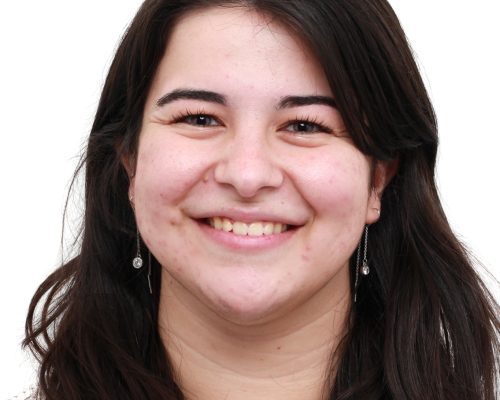
Annamaria LIPTAKOVA (ESR 4)

Main host: UMinho (Dr Leite-Almeida)
Secondary academic partner: NUIG (Dr Finn & Dr Roche)
Non-academic partner: Tecnimede
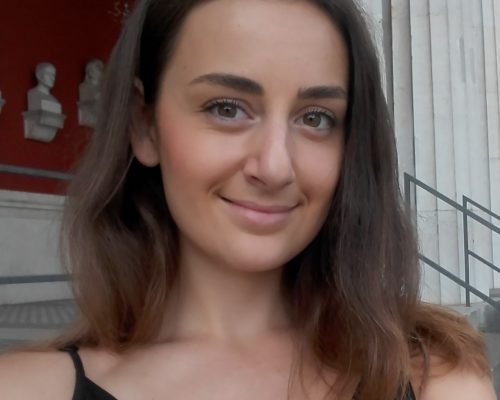
“Hello! My name is Annamária Liptáková and I am from Košice, Slovakia. I studied Pharmacy at The University of Veterinary Medicine and Pharmacy in Košice, in Slovakia. My biggest hobbies are dancing, specifically Brazilian Zouk and hiking. Besides that I really like reading books and travelling. I found my motivation to apply to HaPpY during my short-term internship in Neuroscience where I found working on pain very interesting and its combination with mood disorders made me even more excited because of my personal interest in depression and anxiety. Moreover I really enjoyed working with animals as well. From the program I expect to gain deep knowledge on pain and mood disorders, to gain laboratory skills, to meet new people and gain great experience.”
Madalena Piteira (ESR 16)

Main host: UCadiz (Dr Berrocoso)
Secondary academic partner: UH (Dr Rantamaki)
Non-academic partner: Neurex
“My name is Madalena, I’m from Redondo, a small town in the south of Portugal. In 2018 I moved to Vila Real, where I pursued a Bachelor’s degree in Genetics and Biotechnology at the University of Trás-os-Montes and Alto Douro. In 2021, I enrolled in the Master’s programme in Cellular and Molecular Biology at the University of Coimbra, where I developed a strong interest in cognitive and behavioural neurosciences. The following year, I joined the Neuromodulation group in the Center for Neuroscience and Cell Biology (CNC) to develop my Master’s thesis entitled “Dissecting the role of adenosine A2A receptors on neurobehavioural deficits induced by binge-like exposure to ethanol during adolescence”. I was also able to learn from and be involved in my colleagues’ projects, which ranged from aging to chronic stress, which allowed me to broaden my knowledge in several areas of neuroscience while developing my practical skills. I’m now a PhD student in the HaPpY programme and will be working on the ESR 16 project, which aims to determine the role of the locus coeruleus projection to the hippocampus in chronic pain, with a focus on sex differences. I’m excited to take on this new challenge and grateful for the opportunity to contribute to the progress that the HaPpY project is making. I look forward to learning and growing from this experience, both academically, professionally and personally.”
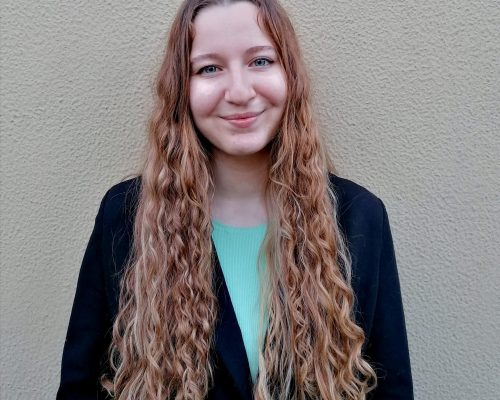
Francesco SCARLATTI (ESR 1)

Main host: ZI (Dr Flor)
Secondary academic partner: CNRS (Dr Foucher & Dr Salvat)
Non-academic partner: Theranexus
“I grew up in a little village overlooking the sea in the Isle of Elba, called Porto Azzurro. Since I was a child, the island has been my playground. My friends and I spent entire days thinking up the best ways to catch fish from the piers, building forts over the hills, or pursuing adventures along the alleyways of the village. Over time, playing the piano and reading books have added to these passions. I have a deep relationship with music and my favourite characters are Albus Dumbledore and Long John Silver. I have always been interested in understanding the reality around me. This was the drive behind my passion both for science and literature during high school. At the end of that period, I started a Bachelor’s Degree in Modern Literature, but soon after I realized that my vocation was to study Neuroscience. So, I graduated in Biological Sciences at the University of Pisa and then continued there with a Master in Neuroscience. I would like to contribute to increase the mental well-being of people and the HaPpY program is a great opportunity for doing that. It will allow me to meet researchers with the same purpose and learn from the masters in this field. I am deeply convinced that happy people are what the world needs the most.”
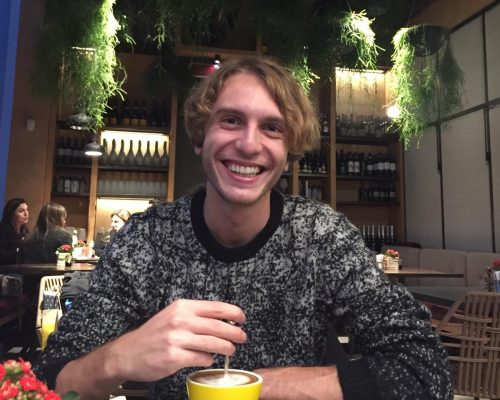
Ginevra SPERANDIO (ESR 2)

Main host: CAU (Dr Nees)
Secondary academic partner: UVSQ (Dr Bouhassira & Dr Attal)
Non-academic partner: Theranexus
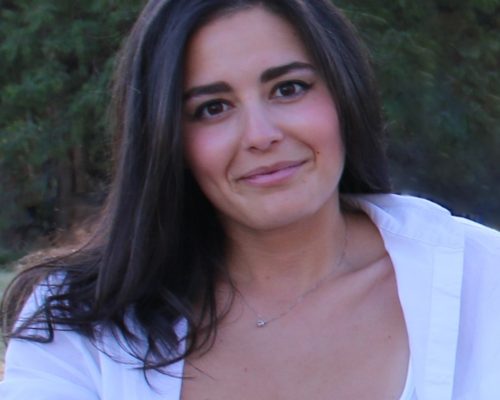
“I was born and raised in Rome, Italy, where I also did both my BA and MA. I first graduated in Psychology and Health and then in Cognitive Neuroscience. My research interests are linked to the Psychobiological field, even though I always try to find a connection with the clinical aspects, specializing myself in contexts of trauma, violence, and maltreatment. I really love travelling and I always take my camera with me to hold the memories of those days. I am also passionate about sports like beach volley, volleyball, rock climbing, and tennis. This is my first experience abroad and I couldn’t ask for anything better. I was looking for an immersive experience, an interdisciplinary and international environment and I really think it is what I will find in the HaPpY project.”
Vandana Shree VEDARTHAM SRINIVASAN (ESR 11)

Main host: CNRS (Dr Yalcin)
Secondary academic partner: ULaval (Dr Labonté)
Non-academic partner: Doric lenses
“I am from the lovely city of Chennai located in the south-east coast of India. I pursued my bachelors in biotechnology in my hometown and moved to Freiburg for my masters in neuroscience. Apart from my studies, I enjoy music, art and good food! Now, I am starting my doctoral phase by being a part of the HaPpY program. I will be working on the ESR-11 project. My master thesis work is in the field of neuroepigenetics, and working on ESR-11 will help me gain more valuable knowledge in this field as well as on behavioral neuroscience. HaPpY being a highly collaborative program, I see it as a great opportunity for me to learn and grow both professionally and personally.”
